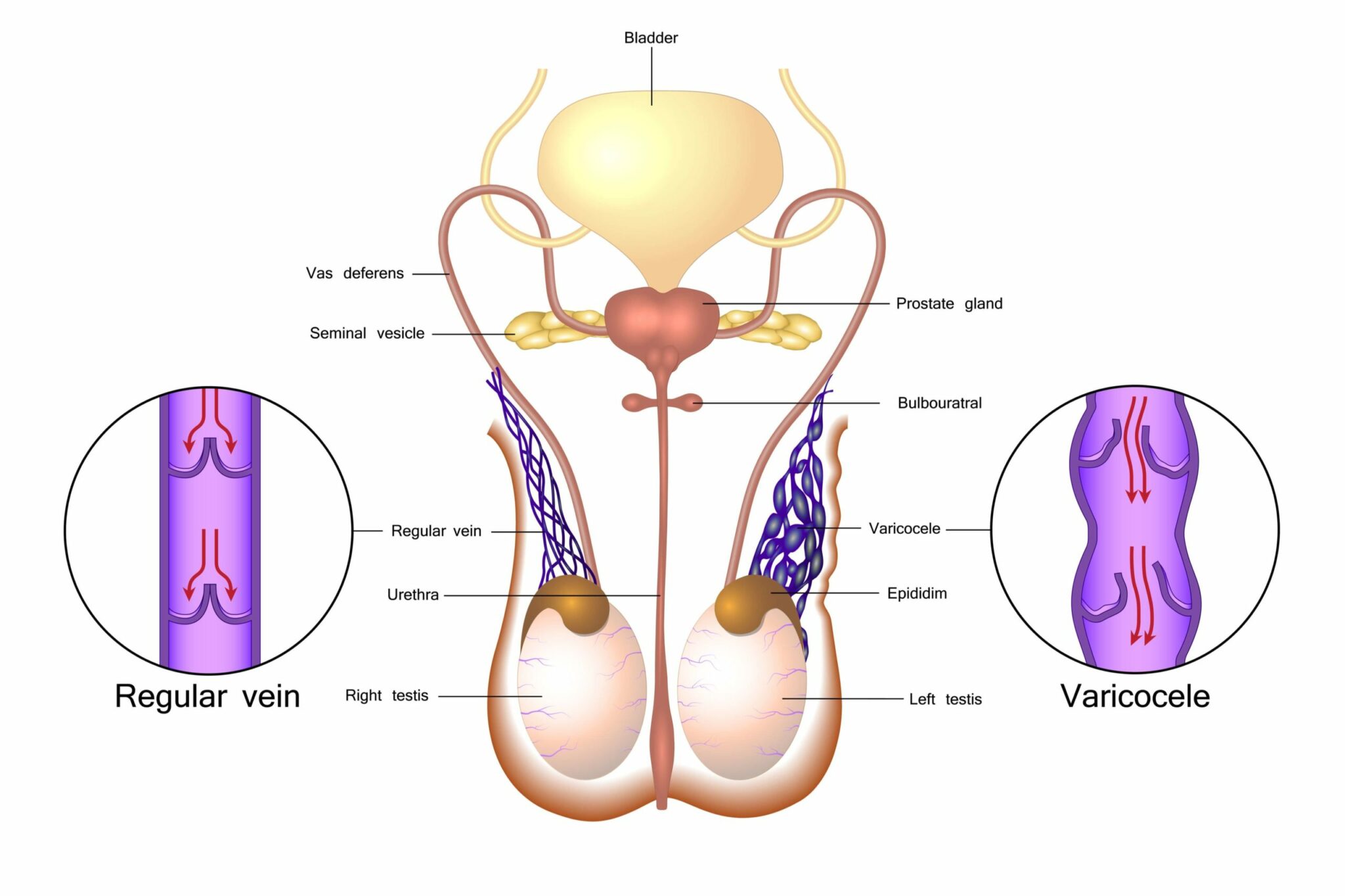Varicocele: Exploring Causes, Treatment, and Improved Fertility

Varicocele is a condition characterized by the enlargement of veins within the scrotum. It is a common disorder affecting men, typically in their early adulthood. Varicocele can lead to discomfort, infertility, and in some cases, complications if left untreated.
This article aims to explore the causes behind varicocele development, shed light on its potential effects on fertility, and provide comprehensive insights into the available treatment options and effective remedies.
Understanding varicocele is crucial for individuals experiencing symptoms or seeking preventive measures.
Varicocele
Varicocele is primarily caused by the dilation and enlargement of the veins within the scrotum. The most common underlying factor is the faulty valves within these veins, which impede the efficient flow of blood back to the heart. As a result, blood pools in the veins, causing them to expand and become varicose. Varicocele often develops gradually and is typically detected during a routine physical examination.
Effects on Male Fertility
Varicocele has been linked to male infertility, affecting sperm quality and production. The elevated temperature within the scrotum resulting from the pooling blood can affect the development and motility of sperm cells. Over time, this can lead to a decrease in sperm count, morphology, and overall fertility.
It is important to note that not all individuals with varicocele experience fertility issues, and the severity of the condition does not always correlate with infertility. Nevertheless, if fertility problems arise, consulting a healthcare professional and considering appropriate treatment options is advisable.
Treatment Options
There are various approaches to treat varicose veins, depending on the severity of the condition and associated symptoms. Treatment aims to alleviate discomfort, improve fertility, and prevent potential complications. The options include:
Lifestyle Modifications: Certain lifestyle changes such as regular exercise, maintaining a healthy weight, and avoiding prolonged sitting or standing can help manage varicocele symptoms.
Supportive Garments: Wearing supportive underwear or compression garments can provide relief by reducing scrotal congestion and promoting blood flow.
Medications: Although medication cannot cure varicocele, certain pain relievers or nonsteroidal anti-inflammatory drugs (NSAIDs) can help manage pain and inflammation associated with the condition.
Surgical Intervention: Surgical procedures, such as varicocelectomy, are considered the most effective treatment for varicose veins. The surgeon either ligates or redirects the affected veins to restore proper blood flow.
Conclusion
Varicocele is a common condition that can affect men of all ages. Understanding its causes and potential impact on fertility is crucial for early detection and appropriate treatment. Lifestyle modifications, supportive garments, and medication can help manage symptoms, but surgical intervention remains the most effective and long-lasting treatment option. If you suspect varicose veins or experience related symptoms, consult a healthcare professional to determine the best course of action.
Early diagnosis and prompt treatment can alleviate discomfort, potentially improve fertility, and reduce the risk of complications. Remember, a proactive approach to varicocele management contributes to overall well-being and reproductive health.

